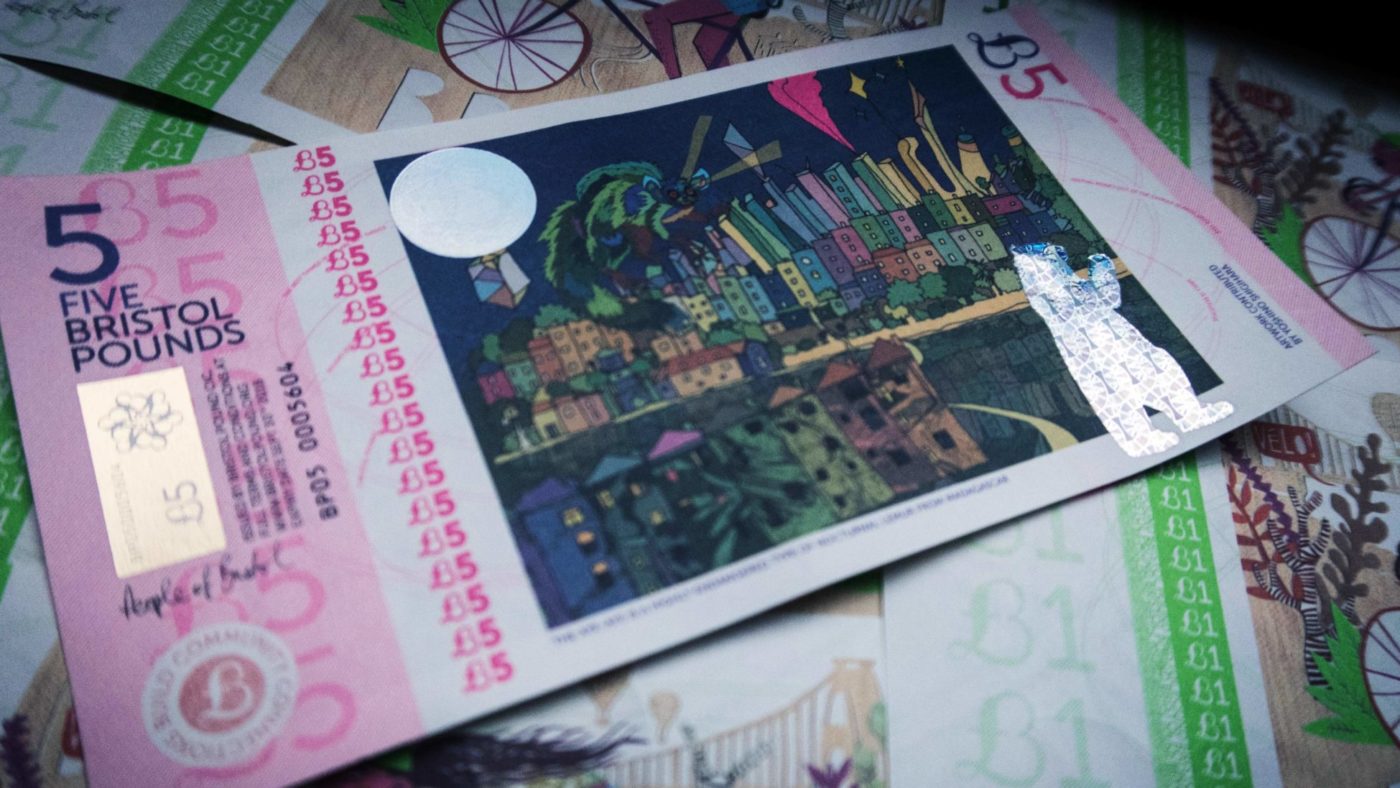The Bristol Pound is on its last legs. The idea of creating a local currency for the city emerged ‘around a table in a pub in early 2009’ but will soon come to an end unless its directors can find £100,000 to cover its running costs. Printing money is not an option this time.
Bristol’s experiment is not the first local currency to hit the buffers. The Exeter Pound ceased operations in 2018. The Totnes Pound came to an end last September. The Stroud Pound, which was launched by Molly Scott-Cato in 2009, has been defunct since 2013. The Lake District Pound will go out of circulation next month. If the Bristol Pound goes under, the only remaining local currencies will be in Brixton and Lewes.
The Bristol Pound was intended to encourage people to spend their money with local businesses rather than with their competitors in Bath, Gloucester or – God forbid – a foreign country. The logic, such as it is, rests on an economic fallacy that was debunked in the eighteenth century. Under mercantilism, it was assumed that the route to prosperity lay in circulating money in the domestic economy, rather than gainfully exchanging it for goods from abroad. Fear of wealth ‘leaking out’ of the country led to an obsession with the balance of trade, of which the philosopher-economist Adam Smith said ‘nothing could be more absurd’.
The fallacy is in confusing wealth with money. Money is a token of exchange. It is a form of wealth, but so are the products it buys. If you spend £500 on a diamond ring you will have less money, not less wealth.
A nation which chooses to buy expensive, inferior goods at home when there are cheaper, better options abroad will make itself poorer. The same principle equally applies to villages, cities and counties. One only has to imagine what would happen if every town in Britain decided to trade exclusively with local firms to see how inefficient a ‘circular economy’ would be. Nevertheless, the Bristol Pound’s managing director, Diana Finch, says:
‘We are creating a money which circulates within the city so that instead of wealth leaving the city, through distant supply chains and head offices miles away, instead that money can stay in Bristol and benefit small businesses in Bristol.’
Note that she says nothing about wealth entering the city in the form of goods and services.
A scheme built on such shaky intellectual foundations was never likely to end well, but there are also practical problems. Bristol Pounds are essentially gift vouchers, and who wants a gift voucher when you can have cash? Ms Finch admits that ‘the currency itself is not generally seen as a benefit to businesses’ because it requires unnecessary administration and is difficult to spend (only Bristol-based businesses that are not listed on the stock market can accept it).
It would be easy to dismiss the Bristol Pound as a benign way of keeping harmless cranks occupied were it not for the cost to the taxpayer. The Totnes, Stroud and Exeter currencies were relatively cheap to run. The Lewes Pound Community Interest Company spends only a few thousand pounds on administration each year and is generally able to balance the books. By contrast, Ms Finch says that the Bristol Pound has running costs of £13,000 per month.
The company that runs the scheme, Bristol Pound CIC, has received grants from private sector organisations such as the New Economics Foundation and the Joseph Rowntree Charitable Foundation in the past but, until recently, a large part of its income came from the government. Its financial accounts are short on detail (and, incidentally, are produced by an accountancy firm in Surrey), but it is clear that it received government grants totalling £336,990 between 2013 and 2014, and was getting at least £50,000 a year from Bristol City Council until 2017/18.
With local councils suffering large budget cuts in this period, it is far from obvious that this was the best use of ratepayers’ money. When the finance blogger Polemic Paine crunched the numbers four years ago, he calculated that each Bristol Pound in circulation cost nearly 50p in administration.
Since then, the Bristol Pound CIC has spent a further £1.4 million. The company boasts that over five million Bristol Pounds have been spent in the city since the currency was launched in 2012. If so, the company has spent around 33p for every pound spent in each transaction. This is economic insanity and yet the Sunday Times describes the Bristol Pound as ‘by far the most successful of the UK’s local currency projects’. Worryingly, this may well be true.
Far from being a boost to the local economy, the Bristol Pound has more likely been a drain on it. The only obvious beneficiaries are the people who run the project. Between 2016 and 2018, staff costs amounted to £722,000, of which the directors took £272,000. Dig beneath the surface and the Bristol Pound looks less like a radical experiment to grow the economy and more like another taxpayer-funded make-work scheme for people with fashionable opinions.
Click here to subscribe to our daily briefing – the best pieces from CapX and across the web.
CapX depends on the generosity of its readers. If you value what we do, please consider making a donation.


